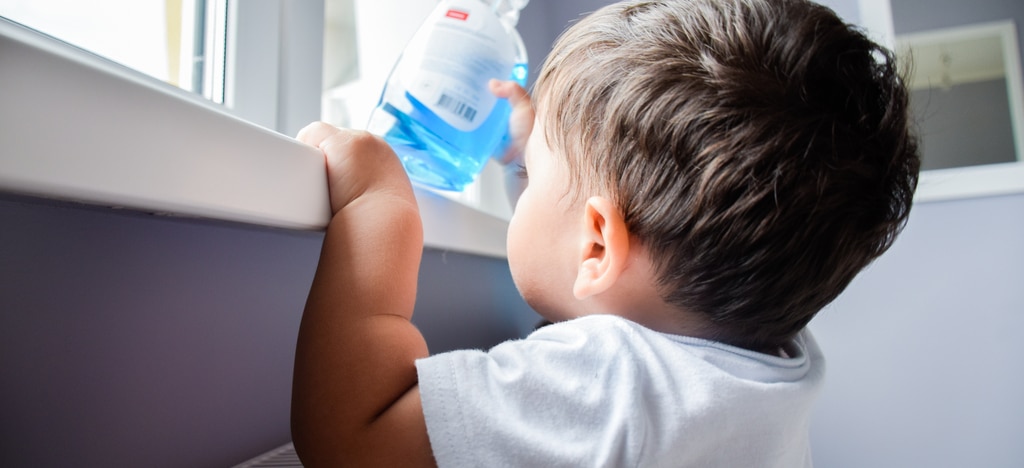
What is the most common cause of child poisoning?
Medications are the leading cause of child poisoning. Nowadays, especially with many grandparents living with us or visiting, it is imperative that everyone in the household understands the need to keep medications out of reach at all times. Children are curious by nature, and it makes sense that they would be even more curious when it comes to medication. Many medications look like candy, and some even taste like candy (kids vitamins, chewable medicines).
What can I do to prevent an accidental ingestion?
- Lock medicines and household products out of your child’s reach, even between doses.
- Use child-resistant packaging. Replace caps securely.
- Store household products (detergents, cleaning agents) in a different place from food and medicine.
- Keep purses out of your child’s reach.
- Remind visitors to do the same.
- Remember even vitamins, creams, eye drops, essential oils and even hand sanitizer can all be harmful if a child can access them.
What do I do if my child swallows something she is not supposed to?
Remove anything remaining in the child’s mouth. If the suspected poison is a household cleaner or other chemical, read the container’s label and follow instructions for accidental poisoning. Then get to your doctor or to the A&E.
What if something gets in her eyes or skin?
Rinse (irrigate) the eye and or skin immediately (remove clothing or contact lenses). Every second matters. Use lots of room temperature water and irrigate for at least 15 minutes. Adults and older children may find it easiest to hop in the shower. Then get to your doctor or the A&E.
And if the child collapses, has a seizure, has trouble breathing, or can’t be awakened, get to the A&E immediately.
Do:
- Stay calm and act quickly.
- Remove the poison from your child. If there is still some in your child’s mouth, make him or her spit it out or remove it with your fingers.
- Retain a sample if it is a plant or a solid substance.
- Take or send the poison container with your child to help the doctor determine what was swallowed.
Do Not:
- Make your child vomit. It can cause more damage.
- Wait for symptoms to develop before getting medical help.
- Try to neutralize the poison with lemon juice or vinegar, or any other substance, unless you are told to do so by a medical professional.
- Give your child anything to eat or drink and don’t give your child syrup of ipecac.
Most importantly, keep in mind that although the A&E is available to help if your child is poisoned, it is much better to try and prevent poisonings by keeping your home well childproofed at all times.
While there is no poison control “helpline” in Singapore, as there are in many of our home countries, the hospitals have resources to call a specialized toxicologist who is always on call.
Some great online resources and apps can be found at:
https://www.poison.org/ (USA)
https://www.poisonsinfo.nsw.gov.au/ (Australia)
http://www.npis.org/ (UK)
































